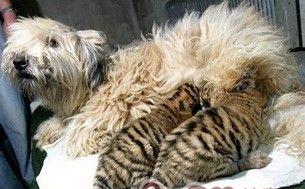Canine postpartum tetany (puerperal tetany) is a metabolic disease after animal delivery, also known as canine postpartum hypocalcemia or postpartum madness.
The disease mainly occurs in nursing bitches 6-30 days postpartum. There are two reasons to explore its causes:
One is the lack of calcium intake, such as long-term feeding of meat without adding calcium.

Second, because the development of the fetus consumes a large amount of calcium in the late pregnancy and after childbirth, and a large amount of blood calcium enters the breast milk, the blood calcium concentration of the bitch drops sharply.
The clinical features of the disease are sudden muscle rigidity and spasm, ataxia and even convulsions on the ground, elevated body temperature, which can exceed 43 degrees, shortness of breath, foaming at the mouth, and disturbance of consciousness.
Initially, animals were restless, panting, walking slowly, whining, salivating, muscle tremors and rigidity.
Diagnostics
According to the inquiry and clinical manifestations, and the dog's body temperature was 39.3°C, the diagnosis was metabolic disease, that is, postpartum calcium deficiency.
Treatment
1. During the onset period, mother and child were raised separately, and the young were fed artificial milk for more than 24 hours.
2. When intravenously injecting calcium gluconate or other calcium preparations, vitamin D preparations should be used at the same time, and the speed must be slow. After mixing, slowly instill at a rate of 1-2 ml/min.
Prevention
Like humans, dogs need to have confinement after giving birth
1. Adjust the diet structure of the bitch, increase the content of calcium, vitamin D and protein, so that the milk is sufficient to meet the needs of the pups for nutrients, such as oral calcium tablets, such as Viscon Marine Active Calcium, add calcium powder to the diet
2. The bitch should go to the downstairs for outdoor activities for 1 hour in the morning and afternoon each day, and bask in the sun more.
3. After treatment, the female dog should continue to breastfeed until the full moon, and the puppies should be supplemented with feeding before the full moon.
The diagnosis and treatment of postpartum hypocalcemia in cats is the same as in dogs.
